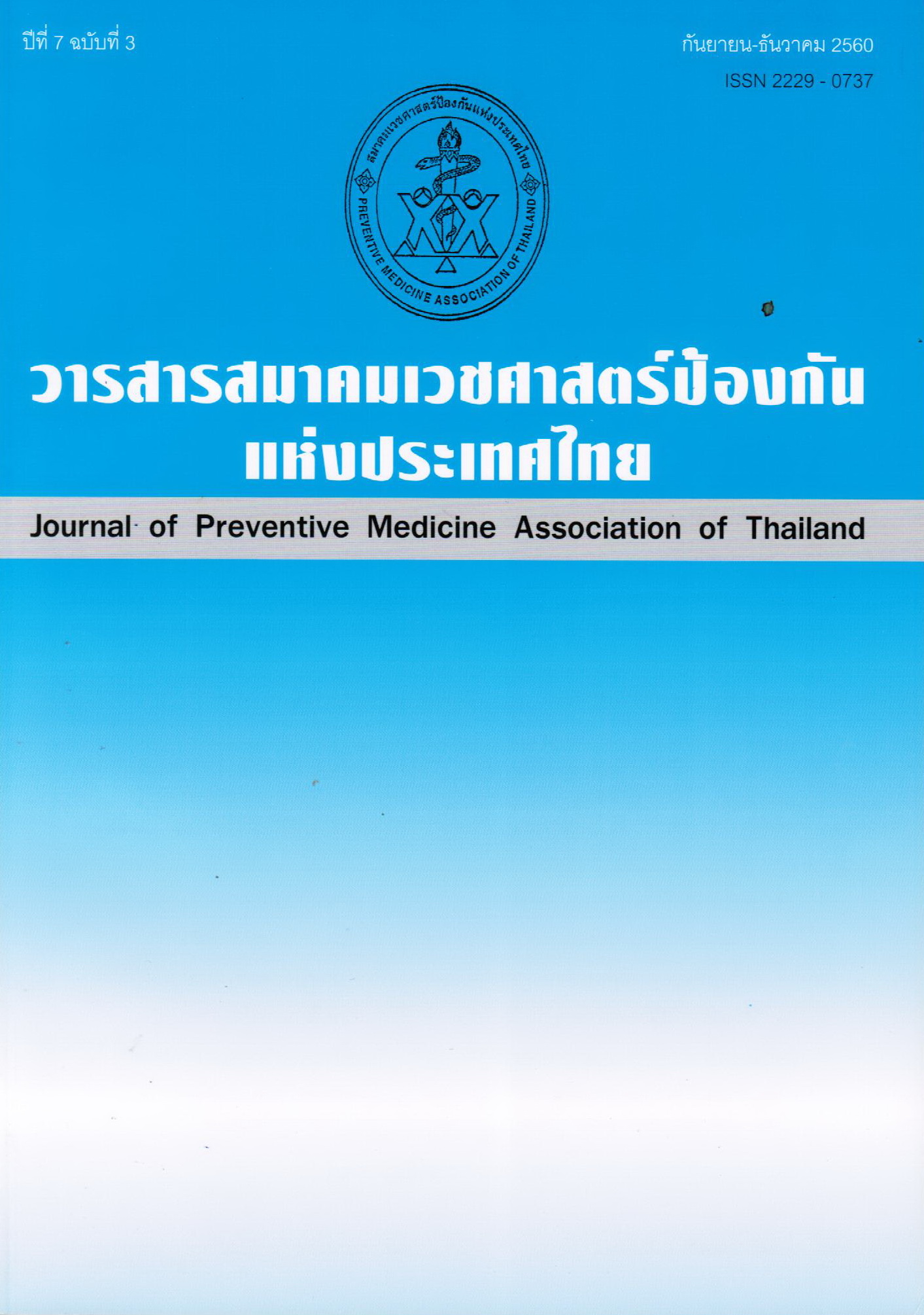Attention Deficit Hyperactivity Disorder (ADHD) and Public Stigma
Keywords:
Attention Deficit Hyperactivity Disorder (ADHD)Abstract
This article presents the knowledge about Attention Deficit Hyperactivity Disorder (ADHD) and public stigma to children with ADHD causing by their different behavior from the regular children in the same age. The obvious different behaviors include are a lack of concentration which negatively affect their study, stubbornness, disobedience, making trouble to people around and teacher in class, disrespecting the rules, impatience, pugnacity, accident from temerity, aggressiveness, and getting angry easily. As public stigma in children with ADHD will affect their development and their social adjustment, the parents need to cooparute with psychiatrist and interdisciplinary team to heal them. Otherwise, when they are getting older to teenager and adult, most of them will have anti-social behavior and other misbehavior including aggressiveness, harassment, drug addiction, theft, carrying offensive weapons, prostitution, and having risky sexual behavior. These children with ADHD will commit crime, use violence, and will be caught from illegal act more than the regular children.
References
2. สถาบันสุขภาพจิตเด็กและวัยรุ่นราชนครินทร์. สถิติผู้รับบริการผู้ป่วยนอกเปรียบเทียบ ปีงบประมาณ 2556-2559. (เข้าถึงเมื่อ 24 พฤศจิกายน 2560). เข้าถึงได้จาก: http://www.smartteen.net/main/_admin/download/-745-1476695416.pdf/
3. ชูศรี เกิดพงษ์บุญโชติ, เบญจพร ปัญญายง, และชูชาติ วงศ์อนุชิต. การรับรู้ตราบาปของผู้ป่วยจิตเวช. วารสารสุขภาพจิตแห่งประเทศไทย 2558; 23(1): 25-37.
4. Corrigan, P.W. and Rao, D. On the Self-Stigma of Mental Illness: Stages, Disclosure, and Strategies for Change. Can J Psychiatry. August 2012; 57(8): 464-469.
5. ชาตรี วิฑูรชาติ. โรคสมาธิสั้น. กรุงเทพ: สถาบันแห่งชาติเพื่อการพัฒนาเด็กและครอบครัว. 2551.
6. วิฐารณ บุญสิทธิ. โรคสมาธิสั้น: การวินิจฉัยและรักษา. วารสารสมาคมจิตแพทย์แห่งประเทศไทย 2555;57(4): 373-386.
7. กรมสุขภาพจิต. แนวทางการดำเนินงานสุขภาพจิตในระบบสุขภาพ ระดับอำเภอ ปีงบประมาณ 2559. กรุงเทพฯ: บียอนด์พับลิสชิ่ง. 2558.
8. ทวีศิลป์ วิษณุโยธิน และคณะ. ความชุกโรคสมาธิสั้นในประเทศไทย. วารสารสุขภาพจิตแห่งประเทศไทย 2556; 21(2):66-75.
9. มาโนช หล่อตระกูล. คู่มือการดูแลผู้มีปัญหาสุขภาพจิตและจิตเวชสำหรับแพทย์. กรุงเทพฯ: สำนักพัฒนาสุขภาพจิต กรมสุขภาพจิต. 2544.
10. จิรนันท์ วีรกุล. โรคสมาธิสั้นและภาวะอยู่ไม่นิ่งในเด็ก. พุทธชินราชเวชสาร 2557; 31(1):65-75.
11. มาโนช หล่อตระกูล และปราโมทย์ สุคนิชย์. จิตเวชศาสตร์รามาธิบดี. พิมพ์ครั้งที่ 4. กรุงเทพฯ: ภาควิชาจิตเวชศาสตร์ คณะแพทยศาสตร์ โรงพยาบาลรามาธิบดี. 2558.
12. พนม เกตุมาน และคณะ. การศึกษาความชุกของโรคสมาธิสั้นและปัจจัยที่เกี่ยวข้องของวัยรุ่นในศูนย์แรกรับเด็กและเยาวชนชายบ้านเมตตา. วารสารสมาคมจิตแพทย์แห่งประเทศไทย; 2559;61(1):27-39.
13. American Psychiatric Association. Diagnostic and statistical manual of mental disorders, (5th ed.). Washington,DC:Author.2013.
14. นิฮาฟีซา หะยีวาเงาะ. ทัศนคติเกี่ยวกับโรคเอดส์และการตีตราทางสังคม:กรณีศึกษาชุมชนมุสลิมในจังหวัดปัตตานี. (วิทยานิพนธ์ปริญญาศิลปศาสตรมหาบัณฑิต). สาขาวิชาพัฒนามนุษย์และสังคม กรุงเทพฯ: จุฬาลงกรณ์มหาวิทยาลัย. 2554.
15. เบญจพร ปัญญายง และชูศรี เกิดพงษ์บุญโชติ. บทความฟื้นฟูวิชาการ: การลดตราบาปของการมีภาวะเจ็บป่วยทางจิต. วารสารสุขภาพจิตแห่งประเทศไทย. 2559;23(1):49-55.
16. ณัฐฐ์วัฒน์ สุทธิโยธิน. หน่วยที่ 5 ทฤษฎีอาชญาวิทยา. เอกสารประกอบการสอนชุดวิชากฎหมายอาญาและอาชญาวิทยาชั้นสูง. นนทบุรี: มหาวิทยาลัยสุโขทัยธรรมาธิราช. 2555.
17. อัมพร เบญจพลพิทักษ์. หน่วยที่ 13 พฤติกรรมเบี่ยงเบน. เอกสารประกอบการสอนชุดวิชาจิตวิทยาเพื่อการดำรงชีวิต. นนทบุรี: มหาวิทยาลัยสุโขทัยธรรมาธิราช. 2559.
18. ขวัญสุดา บุญทศ, อมรรัตน์ ศรีคำสุข ไซโตะ, และสุวรรณา อรุณพงค์ไพศาล. การสนับสนุนทางสังคมของผู้ป่วยโรคจิตเภท. วารสารสมาคมจิตแพทย์แห่งประเทศไทย 2556;58(1): 89-100.
19. เทิมสัทธา เข็มจินดา และอลิสา วัชรสินธุ. ความรู้สึกภาคภูมิใจในตนเองและปัจจัยที่เกี่ยวข้องในเด็กสมาธิสั้นที่มารับการตรวจรักษาที่แผนกผู้ป่วยนอก หน่วยจิตเวชเด็กและวัยรุ่นโรงพยาบาลจุฬาลงกรณ์. Chula Med J 2559;September-October; 60(5):537-543.
20. มยุรา ชัยเดช, จินตนา ยูนิพันธุ์ และสุนิศา สุขตระกูล. ความสัมพันธ์ระหว่างปัจจัยส่วนบุคคลปัจจัยทางคลินิกกับคุณภาพชีวิตด้านสุขภาพของเด็กสมาธิสั้น. วารสารการพยาบาลจิตเวชและสุขภาพจิต 2557 พฤษภาคม-สิงหาคม; 28(2):100-113.
21. วันรวี พิมพ์รัตน์. ความสัมพันธ์ระหว่างความรู้และทัศนคติของผู้ปกครองกับความสม่ำเสมอในการกินยา methylphenidate ของเด็กสมาธิสั้น. วารสารสมาคมจิตแพทย์แห่งประเทศไทย 2559 มกราคม-มีนาคม; 61(1):15-26.
22. Bussing R, Meyer J, Zima BT, Mason DM, Gary FA, Garvan CW. et al. Childhood ADHD Symptoms:Association with Parental Social Networks and Mental Health Service
Use during Adolescence. Int J Environ Res Public Health 2015 Sep;12(9): 11893-11909. doi:10.3390/ijerph120911893.
23. Mueller, A. K., Fuermaier, A.B.M., Koerts, J., & Tucha, L. Stigma in attention deficit hyperactivity disorder. ADHD Atten Def Hyp Disord 2012;4:101-114.
doi:10.1007/s12402- 012-0085-3.
24. dos Reis, S., Barksdale, C.L., Sherman, A., Maloney, K. & Charach, A. Stigmatizing experiences of parents of children with a new diagnosis of ADHD. Psychiatr Serv 2010 Aug; 61(8):811-816.doi:10.1176/ps.2010.61.8.811.
25. McKeague, L., Hennessy, E., O’Driscoll, C. & Heary, C. Retrospective Accounts of Self- Stigma Experienced by Young People with Attention-Deficit/Hyperactivity Disorder
(ADHD) or Depression. Psychiatric Rehabilitation Journal 2015; 38(2):158-163.
26. Falk, E. and Lieberman. The neural bases of attitudes, evaluation and behavior change. In F. Krueger and J. Grafman (Eds.). The neural basis of human belief systems. Psychology Press. 2013.
27. พัชรา ทิพยทัศน์. พัฒนาภาวะผู้นำการเปลี่ยนแปลง. (เข้าถึงเมื่อ 1 มีนาคม 2560). เข้าถึงได้จาก:http://www.br.ac.th/E-learning/lesson4_2html.2554.
Downloads
Published
How to Cite
Issue
Section
License
บทความที่ลงพิมพ์ในวารสารเวชศาสตร์ป้องกันแห่งประเทศไทย ถือเป็นผลงานวิชาการ งานวิจัย วิเคราะห์ วิจารณ์ เป็นความเห็นส่วนตัวของผู้นิพนธ์ กองบรรณาธิการไม่จำเป็นต้องเห็นด้วยเสมอไปและผู้นิพนธ์จะต้องรับผิดชอบต่อบทความของตนเอง






